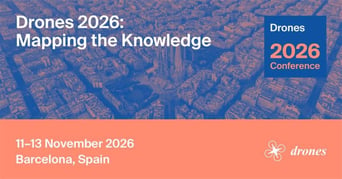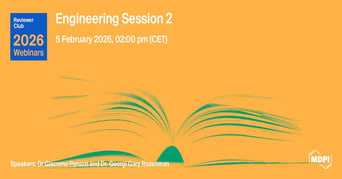- 2.2Impact Factor
- 5.3CiteScore
- 22 daysTime to First Decision
News & Conferences
Latest News & Announcements
Latest Conferences
Propose a Conference Collaboration
Promote and publicise your upcoming conference with MDPI.
All News & Conferences
News & Announcements
MDPI INSIGHTS: The CEO’s Letter #32 - MDPI China and Thailand, China Science Daily, 1,000 Partnerships, R2R
28 February 2026
News & Announcements
MDPI Virtual Academic Publishing Workshop (New Harvest), 25 February 2026
20 February 2026
News & Announcements
MDPI’s Open Access Program Reaches 1,000 Institutions Worldwide
18 February 2026
News & Announcements
Meet Us at the 15th World Conference of International Society for Gerontechnology (ISG 2026), 26–29 March 2026, Canada
12 February 2026
MDPI Conference
Drones 2026: Mapping the Knowledge
11 - 13 November 2026
News & Announcements
Acknowledgment to the Reviewers of Vehicles in 2025
5 February 2026
News & Announcements
MDPI INSIGHTS: The CEO's Letter #31 - MDPI 30 Years, 500 Journals, UK Summit, Z-Forum Conference, APE
2 February 2026
5 - 5 February 2026
News & Announcements
MDPI Reviewer Club Webinar 2026 | Engineering Session 2, 5 February 2026
29 January 2026
News & Announcements
MDPI’s Newly Launched Journals in December 2025
9 January 2026
News & Announcements
Meet Us at the Transportation Research Board (TRB) Annual Meeting 2026, 11–15 January 2026, Washington, D.C., USA
17 December 2025
of 11











.jpg?v=1769683508)

